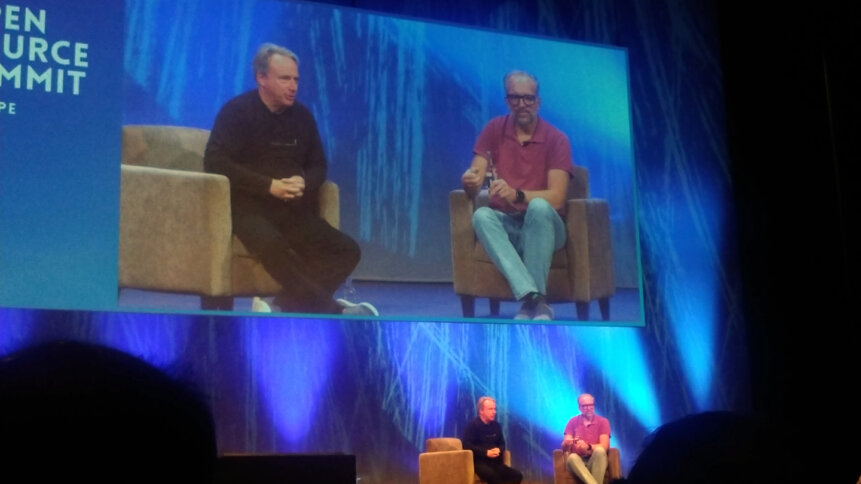Linus Torvalds keynote pushes Rust to kernel version 6.1

Speaking at the Linux Foundation’s Open Source Summit in Dublin, Linus Torvalds, the creator of the Linux kernel (and the Git version control system), confirmed that the new hotness in computer programming languages, Rust, would be included “to a small extent” in the next-but-one kernel release, slated to be 6.1. He also reiterated that the kernel’s version numbers bore more relation to his own inability to differentiate versions in his own mind than it did to the scale of changes in point or full-version nomenclature. Version 6.0, therefore, will not be an especially noteworthy release, despite the rollover from versions 5.19 to 6.0.
But on the subject of Rust, he said, “I’ve always been fairly positive to Rust, and I’ve been one of the proponents of merging. At the same time, I’m also very pragmatic. And then who knows, in a few years after we merge it, and it turns out to be an abject failure – maybe this will be one of those! We look back at this, slightly embarrassed about our main achievement, in thinking that adding a new language is that easy. Well, I mean, ‘what actually is easy?’ I will point out it’s been going on for a long time…years. This does not happen overnight.”
Torvalds, who was once listed in Time Magazine‘s list of the most influential people in the world today, was interviewed on stage at the Linux Foundation Open Source Summit by Dirk Hohndel, latterly of the Cardano Foundation. Hohndel is a long-time compatriot of Torvalds, and himself a stalwart of Linux throughout a career with spots at SUSE, Intel, VMWare, and the Linux Foundation itself.
Torvalds spoke briefly about his experience as a developer on a new Apple laptop based on the company’s M2 chip, describing it as “very smooth.” But he stated his belief in the need for more developer-facing ARM laptops, saying that it’s only in everyday use that bugs can be discovered on the platform. “We have two different entirely unrelated memory ordering issues that came up. And I think it’s partly because people are starting to use his ARM, not just as they support things for somebody else. But you count on the numbers that are using it themselves and finding problems that way. And I think that’s very important.”
ARM’s history has largely been on embedded systems and, more latterly, in the server space, Torvalds said. “Does that mean that I think ARM will take over? No, I think the two [ARM and x86] can coexist.[…] I do think ARM clearly is in a great position thanks to the licensing terms and how how that has allowed ARM to really grow from the embedded world into into laptops and servers and has a lot of companies putting effort into that.”
On the more thorny subject of personality clashes with others in the Linux kernel development community, Torvalds was asked if he had any complaints he would share at the Linux Plumbers Conference, held concurrently with the Linux Foundation Open Source Summit across town, and the first in-person meeting of the community for three years. “So I actually don’t have any complaints. Usually, my complaints are not so much about the technical stuff. […] Technical issues, you can always solve […] So the things that stress me out, tend to be about process and people and maybe that’s because I’m not a people person! […] And we’ve had we’ve had we’ve had personality clashes and we’ve had issues with that. And that’s the thing that tends to worry, but right now I don’t see that. Maybe I will be told otherwise in an hour or two! So for me the big question today is probably going to be the Rust issue.”










